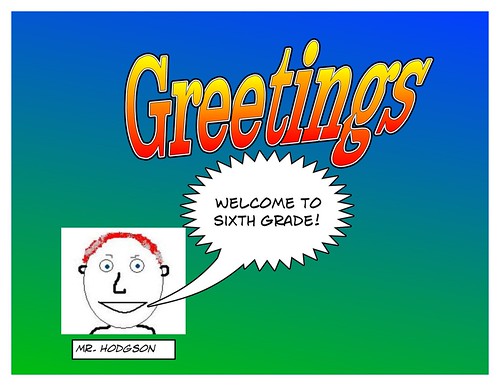
Two posts this week have me thinking about the ways that business is shoehorning its way into our classrooms, and how alert we have to be to those influences, and those who are influencing our policy makers at the upper levels. Of course, most of this stems from the Common Core implementation now underway in most states. Businesses see an opportunity they just can’t pass up: a nervous market facing deadline pressures (school superintendents, curriculum coordinators) and unsuspecting clientele (teachers, students), plus public cash. I know that sounds a bit cynical, but it feels more and more to me as if schools are the next open market.
First, Bill Fitzgerald over at Funny Monkey posted a few pieces about start-up businesses trying to carve out a niche in education. It seems to me that everywhere we turn, some app developer or business venture is trying to get a piece of the educational action. Maybe it has always been this way, but the Common Core movement has really opened up the floodgates, or at least that’s how I perceive it. Bill first notes that one start-up site (which includes a news collection that I subscribe to) appeared less about education, and more about the commercial aspects.
“From a quick visit to their site, it felt as much like an advertising portal as an informational resource. Admittedly, I didn’t spend much time there, but I didn’t see much in the way that would compel a longer visit either – but that could be a design issue, and I digress.” — Bill Fitzgerald
In a second post, Bill notes how start-up ventures don’t always “get” what is needed in the classroom. He said some companies are good at building “widgets” that meet a specific need, but may not have real value when in the room with real students.
“… this creates another collision point as startups careen into education: many people building educational products fail to understand why, where, or how their product fits into the process of learning. Some of this can be chalked up to unfamiliarity, and some of it can be chalked up to hubris, but there are a lot of funded startups building products that only look good on a pitch – when they get shoehorned into a classroom, they stand out like a substitute teacher trying to get kids excited about phonics.” — Bill Fitzgerald
Then, Paul Bogush crafted a piece this morning in which he dove into some test questions from his state of Connecticut, which is part of the Smarter Balance consortium for Common Core assessments. (We’re a PARCC state up here to his north, so I am curious about differences, etc.). Paul has written before about the business connections to the Common Core movement, and tried to make clear who is behind the movement.
This morning, in his post entitled “In Bed with the Enemy,” Paul investigated some of the resources being used for the test questions that are aimed at his students, and realized that almost all of the online sources and sites being used were owned or at least partially-owned by the educational giant, Pearson.
Paul ends with this:
“I don’t think anyone would teach using a unit on tolerance given to them by the enemies of civil rights. No teacher would put up with that. But yet, teachers (including myself) will start off this year fully supporting the Common Core in the classroom. I feel as though every day when I come home I need to take a shower, because I have spent my day in bed with the enemy.” — Paul Bogush
As teachers, we need to always have our eye out on these kinds of developments. Hey, the Common Core talk about “close reading” of texts and supports media literacy skills, and Bill and Paul are doing that with their writing. Are the rest of us doing it, too? Are we being critical enough of the resources we bring into our classrooms?
Peace (in the money),
Kevin







